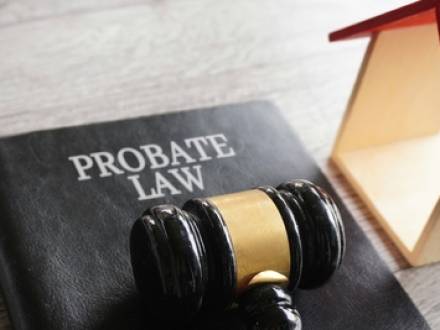Is There a Time Limit to Settle an Illinois Estate?
 Settling an Illinois estate can be difficult, moving at a slow crawl, or it can be relatively straightforward and reasonably quick. The complexities of an estate will largely determine how the process will go, or if a will or trust is challenged or contested, the length of time will increase exponentially.
Settling an Illinois estate can be difficult, moving at a slow crawl, or it can be relatively straightforward and reasonably quick. The complexities of an estate will largely determine how the process will go, or if a will or trust is challenged or contested, the length of time will increase exponentially.
Of course, those who are waiting for the process to conclude, like beneficiaries or heirs, are naturally anxious to have the process over and done. There are a number of factors that will affect how long the probate process will take. If you have questions about settling the estate of a loved one, it can be helpful to speak to an experienced Oakbrook Terrace, IL estate planning attorney.
What is the Probate Process in Illinois?
The settlement of an estate in Illinois will typically involve probate, which is a procedure that includes will validation, appraisal of assets, debt settlement, and distribution of assets to designated heirs. There are many steps involved in the probate process, including:
- The probate is opened by the executor by filing a petition with the probate court. This step usually occurs soon after the passing of the decedent.
- All interested parties, including beneficiaries and creditors, must receive notification of the probate. Creditors usually have six months from notification of the probate to file a claim against the estate.
- The decedent’s assets will be appraised.
- The debts and taxes of the decedent will be paid. The time frame for settling these obligations varies according to the complexity of the estate.
- Distributions are made to the beneficiaries after all creditors’ claims, taxes, and debts are paid. If there is no will, these distributions are determined according to Illinois intestate succession laws.
- After all debts, taxes, and distributions to heirs and beneficiaries are resolved, the estate can be closed. The executor must provide a final accounting to the probate court.
How Long Will Probate and Closing Out the Estate Take?
The state of Illinois does not set a specific time limit for settling an estate, but it does expect executors and probate courts to handle the process as efficiently and diligently as possible. Because of the variation in estates, the length of the process can vary from several months to several years. As a general rule, many estates can be administered in 10-18 months. Some of the factors that affect the length of probate include:
- The number of beneficiaries in an estate – and how well those beneficiaries get along - directly impacts the length of time it will take to settle an estate. The executor must stay in contact with beneficiaries, so it will naturally take longer if there are a significant number of beneficiaries.
- The Affidavit of Heirship provides a detailed description of the family tree related to the decedent. The representative of the estate must file this document with the court, so if there is a lack of information or if the heirship is complicated, it can take longer.
- Any claim against the estate will slow down the process. A claim could be in the form of an heir who is unhappy with his or her portion of the estate, unpaid medical expenses, or many other issues.
- Complex asset holdings will require a longer time, particularly when assets are in other states or countries.
- The level of organization by the decedent will have a large impact on how quickly the estate can be settled. When a person leaves no clear paper trails for assets, it takes time to track them down.
Contact a DuPage County Estate Planning Lawyer
If you need experienced guidance to settle a loved one’s estate, Farooqi & Husain Law Office can help. When you have a knowledgeable Oakbrook Terrace, IL estate planning attorney by your side, you are assured the process will go as quickly and smoothly as possible. Our attorneys are highly skilled in the estate planning process and administration and understand the intersection of Islamic personal law and U.S. estate planning laws. Call 630-909-9114 to schedule an initial meeting.


 630-909-9114
630-909-9114




